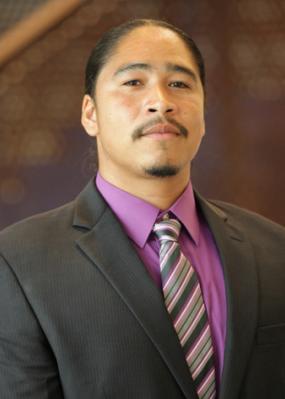Brought up in the Native American Narragansett Nation in Rhode Island and descended from the Eastern Woodland peoples, Christian Hopkins was business savvy from a young age.
At a young age Christian launched a handyman service and in high school he took on his grandfather's Native cuisine business. Both of these ventures showed Christian how powerful business knowledge could be in sustaining and preserving indigenous culture.
This led him study to a bachelor's degree in business, before pursuing a dual MBA and Master's degree in Business Analytics.
Now, Christian uses his business acumen and entrepreneurial skills as chairman of his tribe's economic development council, while also helping local business owners in his new role at Kansas University’s (KU) Small Business Development Center.
The Narragansett Tribe of Rhode Island
Christian is a member of the Narragansett from Rhode Island and Mi’kmaq from Nova Scotia, Canada. The Narrangansett Indians are descendants of the aboriginal people of Rhode Island.

Christian grew up outside the Narragansett’s Rhode Island reservation as it was too small for the tribe to live on, but he maintained strong connections with his tribal community.
"My tribe is very community focused. So we're very tight as a family. We all like to come together and spend time with one another," Christian says.
On occasion, this involves cultural events such as the August meeting, which is the oldest recorded powwow—a Native American gathering—in all of America. This year marked the 347th recorded meeting. It celebrated the harvest of the corn.
"We started keeping records to protect ourselves from people trying to jeopardize indigenous identity, but we've had it for many moons before it was recorded," Christian explains.
"It's always the second weekend in August. And I've always been in attendance throughout my childhood."
Discovering entrepreneurial ambitions
Alongside his tribal roots, Christian always had an entrepreneurial spirit. He became interested in entrepreneurship and business strategy at a young age when working odd jobs in his community—shoveling snow, mowing lawns, and cutting wood.
"I would exchange services for money. When it would snow hard, everybody would put me on the roof to shovel the snow off," Christian explains. "That was kind of my unofficial introduction into entrepreneurship."
The entrepreneurial bug really bit when he was 17, in high school. Christian's grandfather suffered health complications and sold the Native Cuisine business he had run since before Christian was born. Conveniently, Christian's high school had an entrepreneurship course which gave him the opportunity to restart his grandfather's business.
The course offered $500 of funding for students with a solid business plan, but Christian set his sights higher. "Once I got the bug and was working through how to build a business plan, I ended up asking for $1,500. And I got it,” he explains.
"With that $1,500, I was able to restart my grandfather's business, albeit it wasn't fully operational, but it was an honoring and a continuation of him. And I still do that to this day."
Developing entrepreneurial skills at business school
Christian’s entrepreneurial spirit drove him into business education. But another defining factor was his desire to tell the story of the Narragansett people.
In High School, Christian delved into the tribe's history, where he found out about the Great Swamp Massacre, an atrocity by the colonial militia of New England on the Narrangansett people during King Philip's War.
While the State of Rhode England officially considered it a fight, Christian explains that the militia massacred women, children, and elderly from both the Narragansett tribe and the neighboring Wampanoag tribe.
Christian felt through business he could build recognition for his tribe and other indigenousness tribes throughout the US.
"That was a story people needed to know, and that's what sparked my passion for being able to spread that,” he says. “I was trying to figure out how I could do that, and business was that catalyst for me."
Christian enrolled in a bachelor's in business administration before returning to his family carpentry trade. At that time, he was elected chairman of the Narrangansett’s Economic Development Commission, a prestigious role within the tribe.
He then began looking for an opportunity to gain a graduate business degree, studying for the GMAT during lunch breaks and days off.
"I wanted to provide my best to my tribal nation. I felt like a master's degree in business would be that choice for me."
KU offered Christian a scholarship and a subsidized tuition fee since he studied his bachelors in Kansas, at Haskell Indian Nations university. He enrolled in the school’s MBA program, but added on an MSc in Business Analytics to study as part of a dual degree.
Christian felt learning about data could allow him to help his indigenous community.
"I saw the opportunity of data sovereignty for tribal nations all around the country. To be able to process and analyze our data, to help make decisions within our community," he says.
Helping an indigenous community
Now a graduate from KU, Christian is living out his goal of serving Indigenous communities. His tribal name means 'good friend' in the Narragansett language, he hopes he can live up to that name by building a business ecosystem for his tribe.
He offers free private consulting and teaches financial literacy for those in his tribe who want to develop, expand, or tweak their businesses.
"I would love to build an ecosystem because I know that it has to involve more than just me. So I’m really trying to create some resources and develop relationships that can help to benefit our tribal entrepreneurs.
"I feel like people need a good friend in their corner, someone that isn't afraid to tell them to give constructive criticism, but also someone with their best interests at heart."
Next Read:


